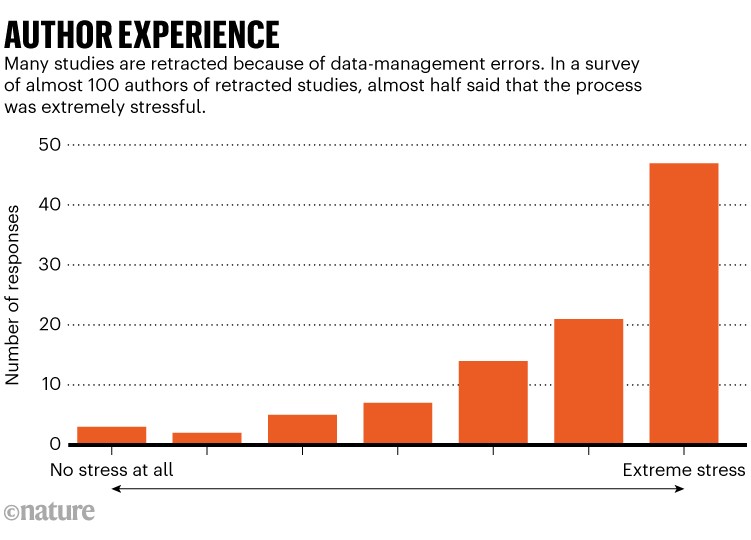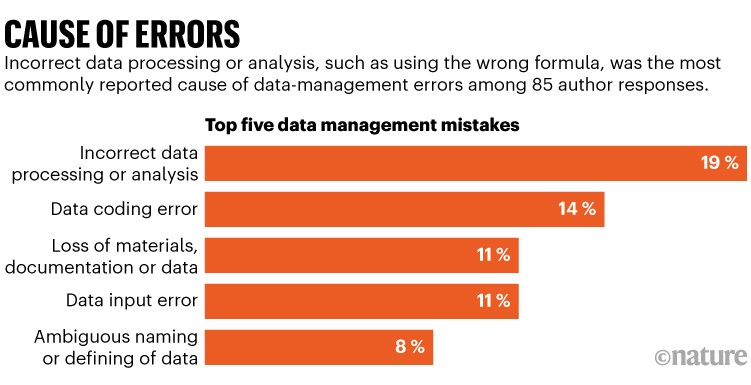
Retractions caused by honest mistakes are extremely stressful, say researchers

Authors who had a paper retracted said their data errors were mostly caused by inattention or technical problems.Credit: Jacob Wackerhausen/Getty
Most researchers whose papers are retracted owing to an honest mistake find the ordeal stressful, according to a survey of almost 100 authors1.
The survey focused on retractions that had occurred because of data-management errors, a common cause. Roughly half the survey respondents said the retraction caused extreme stress (see ‘Author experience’).

Source: Ref. 1
The findings offer a detailed view of the circumstances aside from misconduct that lead to retractions, and the emotional toll that the process has on researchers – an issue that is rarely discussed in scientific publishing, says Misha Angrist, a science-policy researcher who has studied retractions at Duke University in Durham, North Carolina. “It’s a really useful addition to the literature,” he says.
Many retractions are connected to fraud and misconduct, and these cases often receive a lot of attention — but studies have shown that retractions due to honest mistakes are common as well2. These analyses have largely relied on retraction notices, which can lack specific details about the error and what caused it, says study co-author Marton Kovacs, a metascience researcher at Eötvös Loránd University in Budapest. “You rarely find any information about the human nature of these errors,” says Kovacs.
Errors abound
To address this gap, Kovacs and his colleagues used the Retraction Watch database to identify 5,041 papers that had been withdrawn because of data-management errors.
The researchers e-mailed a survey to 6,680 authors of these studies, asking about the errors and what they thought had caused them. Almost 250 researchers responded, and after excluding those who didn’t answer all the questions, the team was left with 97 responses. The findings were published last month in Royal Society Open Science.
The researchers identified 18 types of data-handling mistake. The most common blunder was incorrect data processing and analysis, such as using the wrong formula or miscalculating a statistic; this mistake was mentioned in 16 responses, accounting for almost 20% of errors. Coding errors, loss of materials or data and input mishaps followed closely (See ‘Cause of errors’).

Source: Ref. 1




